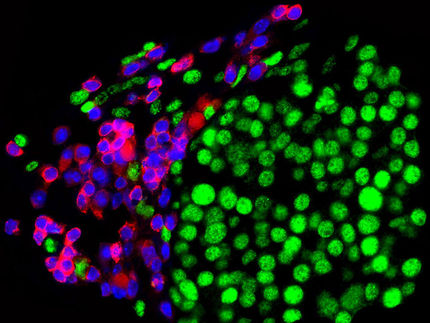First immunotherapy for rare and aggressive skin cancer in the European Union approved
Initial launches planned in Germany and the UK
Merck and Pfizer Inc. announced that the European Commission (EC) has granted marketing authorization for BAVENCIO® (avelumab) as a monotherapy for the treatment of adult patients with metastatic merkel cell carcinoma (mMCC), a rare and aggressive skin cancer. BAVENCIO will have marketing authorization in the 28 countries of the European Union (EU) in addition to Norway, Liechtenstein and Iceland. BAVENCIO is expected to become commercially available to patients in Europe by prescription within the coming months, with initial launches in Germany and UK expected as early as October 2017.
“The EC’s decision is significant for BAVENCIO and more importantly, for European patients living with this very challenging skin cancer,” said Luciano Rossetti, M.D., Executive Vice President, Global Head of Research & Development at the biopharma business of Merck. “Our alliance with Pfizer continues to demonstrate the power of working together, and we are grateful to everyone who has helped to bring the first and only approved immunotherapy for mMCC to European patients.”
“This European approval further establishes our continued momentum, building on the accelerated approvals BAVENCIO received in the US earlier this year,” said Liz Barrett, Global President, Pfizer Oncology. “Importantly, we are now one step closer to our goal of making BAVENCIO available to patients around the world.”
“Merkel cell carcinoma is a particularly aggressive form of skin cancer with very poor outcomes, especially for those with metastatic disease,” said Dirk Schadendorf, MD, Director of Dermatology, University Hospital Essen, Germany. “This approval is a meaningful development for patients and their families suffering from this devastating disease.”
The EC approval is based on data from JAVELIN Merkel 200, an international, multicenter, single-arm, open-label, Phase II study; with two parts:
- Part A included 88 patients with mMCC whose disease had progressed after at least one chemotherapy treatment. The objective response rate was 33%, with 11% of patients experiencing a complete response and 22% of patients experiencing a partial response. At the time of analysis, tumor responses were durable, with 93% of responses lasting at least 6 months (n=25) and 71% of responses lasting at least 12 months (n=13). Duration of response (DOR) ranged from 2.8 to more than 24.9 months.
- Part B, at the time of the data cut-off, included 39 patients with histologically confirmed mMCC who were treatment-naïve to systemic therapy in the metastatic setting. The objective response rate was 62%, with 14% of patients experiencing a complete response (CR) and 48% of patients experiencing a partial response (PR). Sixty-seven percent of patients experienced a progression-free survival (PFS) rate of 3 months.
The safety of avelumab has been evaluated in 1,738 patients with solid tumours including metastatic MCC (N=88) receiving 10 mg/kg every 2 weeks of avelumab in clinical studies:
- 1,738 patients with solid tumors received 10 mg/kg every 2 weeks. In this patient population, the most common adverse reactions were fatigue (32.4%), nausea (25.1%), diarrhea (18.9%), decreased appetite (18.4%), constipation (18.4%), infusion-related reactions (17.1%), weight decreased (16.6%), and vomiting (16.2%). The most common Grade ≥ 3 adverse reactions were anaemia (6.0%), dyspnoea (3.9%), and abdominal pain (3.0%). Serious adverse reactions were immune‑related adverse reactions and infusion‑related reaction.
The EC’s decision follows the US Food and Drug Administration’s (FDA) accelerated approval* for BAVENCIO earlier this year for the treatment of mMCC and patients with locally advanced or metastatic urothelial carcinoma (UC) who have disease progression during or following platinum-containing chemotherapy. BAVENCIO was also granted marketing authorization by Swissmedic on September 05, 2017, for the treatment of patients with mMCC, whose disease has progressed after at least one chemotherapy treatment.
The clinical development program for BAVENCIO, known as JAVELIN, involves at least 30 clinical programs and more than 6,300 patients evaluated across more than 15 different tumor types. In addition to mMCC, these cancers include breast, gastric/gastro-esophageal junction, head and neck, Hodgkin’s lymphoma, melanoma, mesothelioma, non-small cell lung, ovarian, renal cell carcinoma and urothelial carcinoma.























































